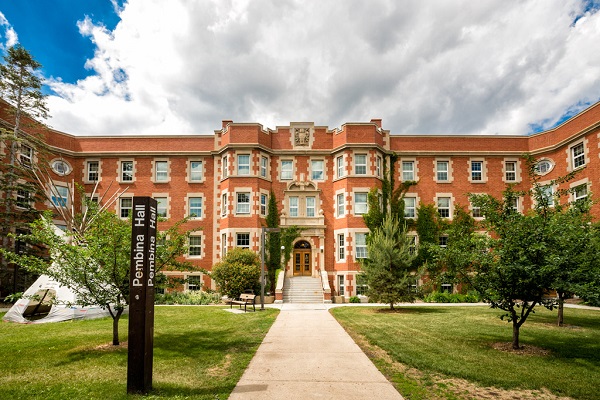University of Alberta’s AHS chair to focus on Indigenous perspectives to health research and policy
Cree researcher Jessica Kolopenuk understands the importance of bringing Indigenous knowledge and governance to health and research policy. As of this month, she will be in an ideal position to support that goal.
“It’s not only about including our knowledges and perspectives in research and policy,” she says.
“It’s about having control over the knowledge production that impacts us — knowledge that is about us, our territories, and our communities and relatives.”
As of Jan. 1, Kolopenuk has taken on the role of Alberta Health Services Chair in Indigenous Health within the Faculty of Medicine & Dentistry. The purpose of the newly created position, funded by Alberta Health Services, is to promote research and scholarship in Indigenous health and to develop research partnerships, including partnerships with Indigenous communities.
Kolopenuk, who has a PhD in political science from the University of Victoria, wants to focus on three main goals.
The first is to produce critical research that will inform policy at the provincial, national and global levels. She plans to pursue partnerships that will allow her to join national and global conversations regarding health science and policy.
Her second goal is to support and encourage Indigenous students who are interested in health science technology and health policy.
This has been a large part of her work already as an assistant professor in the Faculty of Native Studies. She and her colleague Kim TallBear developed the Indigenous Science, Technology, and Society Research and Training Program and Network with the aim of supporting scientific literacy and capacity among Indigenous Peoples. The program includes an online course called Indigenous Peoples and Technoscience, which is available to undergraduate students and the public, including individuals in Indigenous communities looking for professional development.
It’s not only about including [Indigenous] knowledges and perspectives in research and policy. It’s about having control over the knowledge production that impacts us — knowledge that is about us, our territories, and our communities and relatives.
Kolopenuk is also part of a team that leads the Summer internship for INdigenous peoples in Genomics Canada, referred to as SING Canada. The one-week program provides Indigenous participants with hands-on classroom, lab and field training in genomic sciences and critical Indigenous studies.
“The goal is to train the next generation of Indigenous genome scientists but with an unconventional and critically minded curriculum,” she says.
Kolopenuk’s focus on Indigenous knowledge and governance in health-care policy has also led her to work directly with Indigenous communities and their youth.
She partnered with researchers from McGill University and three rural First Nations communities to develop elite-level remote training for hockey players. When the pandemic hit, the communities asked whether the researchers could instead work with their high school educators and leaders to develop online educational modules related to health and well-being.
“It really shifted from an athlete-centred project in hockey to increasing the capacities of Indigenous communities, and youth in particular, to engage with science and technology,” says Kolopenuk.
Her third goal, Kolopenuk says, is to build the capacities of predominantly non-Indigenous health institutions “to support research projects that are highly interdisciplinary and relational that Indigenous communities and students wish to engage in and lead.”
“We know that the problems facing us today — our society, our environment, our relationships — are not going to be solved by siloed, disciplinary perspectives,” says Kolopenuk.
“Collaboration, interdisciplinarity and an anti-colonial disposition are going to be key in working together to centre and strengthen Indigenous governance and self-determination in health and research policy.”

